What is the difference between hotel categories in Italy?
Well, first of all, let us make one thing clear: not every 1-star hotel is bad, and not every 5-star hotel is spectacular. Just like not every inn is bad and not every boutique hotel is very special! What are you talking about, Patricia? Well, what defines the classification of a hotel are the services provided combined with the structure of the establishment. But remember that while a 5-star hotel tends to offer impeccable service, you’ll only find that homemade service in an inn, for example. So, when choosing a hotel, consider all this and more. Let’s find out what the difference is between the hotel categories. Stay with us and make the most of Italy! Here at Your Travel to Italy with Ana Patricia you make the trip of your dreams! ALSO: see our “Accommodation in Italy – Tips for your holidays!” Read also: Examples of Itineraries in Italy!
Introduction
It is important to consider your type of trip: if you’re with children or elderly people, if you’re going to take some time to have a business meeting, if you intend to work at the times you are at the hotel and there’ll be Wi-Fi available, if your trip is only for tourists, etc. Find out here where to sleep in the main Italian cities: Rome, Naples, Capri, Milan, Florence and Venice
Location
Many people end up choosing the wrong hotel because it only takes into account the daily rate, but the accommodation goes much further! Always check the location; remember that the farther from the tourist attractions your hotel is, the more you’ll spend on transportation to get downtown! In the end, your savings are going to be six of one and a half dozen of the other—save on hotels, but spend on transportation! Also, think about the convenience you’ll find around, if there’re stores, supermarkets, pharmacies, train and/or metro stations, restaurants, etc. Read also: How to save on accommodation in Italy?
Services offered by the Hotel
Last, but not least, are the services offered by the hotel! Find out if the hotel has a restaurant, if breakfast is included in the daily rate, if the front desk works round-the-clock, if the check-in and check-out times are flexible, if they match your arrival and departure times, etc. These are items that many people end up neglecting, and, therefore, some experiences can become true “unpleasant stories.” Read also: Accommodation in Italy by clicking here!
1) What is the difference between hotel categories in Italy? DIFFERENCE BETWEEN BEDROOM AND SUITE
To begin, let’s understand the difference between a bedroom and a suite. Besides price, there are some well-defined differences for hosting spaces:
Standard Room
Although it is considered by many to be a somewhat retrograde name, it is the best name to define the simplest rooms in a hotel structure. They are usually at the back or on the side of the hotels, which means you’ll have no view of the Main Street, for example, or interesting points, but they offer basic services, as we’ll see below.
Superior Category (Executive Apartment)
The rooms are a little better located within the hotel structure; the rooms can have a side view of the sea, for example. The furniture may be a little better than the standard room, but the hotel services offered are, usually, the same.
Deluxe (or Suite)
They are larger rooms that may or may not have an anteroom (they are usually ‘divided’ into three parts: the living room, bedroom, and bathroom). The bathroom in the room also has a bathtub, and some rooms even have a small kitchen. The view is usually facing the sea or some important point in the city, and the room is serviced either by the concierge or a butler 24 hours a day. Very luxurious, isn’t it?
And what is the difference between a concierge and a butler?
The concierge is responsible for taking care, mainly, of ‘out of the hotel’ matters for guests, such as restaurant reservations, purchasing tickets for shows, car rentals, airport transfers, currency exchange, etc. The butler is responsible for taking care of the guest with more internal matters, for example, “I don’t want bagasse in my juice” “I’d like a pair of extra slippers in the room” or “I need another blanket”, etc.
Tip
If you want to surprise someone special when you return to the hotel, the butler can help you with that! ; ) Flowers, champagne, chocolate: let the butler know!
2) What is the difference between hotel categories in Italy? DIFFERENCE BETWEEN THE ‘STARS’
And what are the differences between the hotel’s stars? Good to know: there’s no global classification to designate the category of hotels; each country classifies its hotels according to the rules of the local Ministry of Tourism. Of course, each place has a requirement.
Location, structure, services, guest evaluation, tourist agency evaluation, etc. are considered. In Italy, the organizations responsible for hotel structures are the Federalberghi (Federazione Delle Associazioni Italiane Alberghi—Federation of Italian Hotel Associations) and AITR (Italian Association for Responsible Tourism), which classify all hotel structures in the country. Below, you can see how the classification is made:
One-Star
Front desk opened for at least 12 hours a day, cleaning and tidying the room and bathroom once a day (*); rooms with a minimum of 14 square meters and a bathroom of at least 3 square meters (with ventilation even if artificial) with a shower, toilet, and sink without mandatory hot water, but because of the Italian cold, the taps usually have hot water systems. It’s not mandatory to have air conditioning, only heating.
(*) Important
- Cleaning and tidying the room means making the bed, dusting, cleaning the floor, and disinfecting the bathroom.
Note
- The bathroom can be private or collective. If it’s collective, the presence of a window with natural ventilation is mandatory; if the bathroom is private, the window is not mandatory.
Attention
- If the stay in a hotel in this category is for more than two or three nights, the bath towels, face wipes, and floor cloths may not be changed daily. Ask at the hotel front desk if you want this to happen; however, sometimes the request can be denied due to availability in the hotel’s wardrobe.
Two-Star
The front desk is open for at least 12 hours a day. Cleaning and tidying the room and bathroom once a day (the same rule of one-star category applies to making the bed, cleaning the room and bathroom, and tidying the room once a day with changing bath towels, face towels, and floor cloths if requested by the guest, if available in the hotel’s wardrobe).
Elevator in vertical structures with at least 3 floors; single rooms with a minimum size of 8 square meters, with windows; if it’s a double room, the minimum size is 14 square meters, also with a window; bathroom with at least 3 square meters with no window required, but with ventilation, even if artificial; in the bathroom: shower, toilet, and sink (no hot water is required, but because of the Italian cold, the taps usually have hot water systems); it’s not mandatory to have air conditioning, only heating.
Note
- The bathroom can be private or collective; if it’s collective, the presence of a window with natural ventilation is mandatory. If the bathroom is private, the window is not mandatory.
Three-Star
The front desk is open for at least 16 hours a day. Bar / room service for at least 12 hours. It is mandatory to have at least one receptionist who speaks another foreign language (usually English). Cleaning and tidying the room once a day with a change of bath towels, face wipes, and floor cloths if requested by the guest and if available in the hotel’s wardrobe. Single rooms with a minimum size of 8 square meters with a window; if it is a double room, the minimum size is 14 square meters with a window; the bathroom must be private with at least 3 square meters with ventilation, in addition to having a shower, toilet, and sink with hot water. It’s not mandatory to have air conditioning in all rooms, only heating.
Four-Star
Front desk and bar/room service that operate for at least 16 hours a day; trolley for transporting luggage; elevator in case of a vertical structure with more than 2 floors; at least two receptionists who speak two foreign languages. Cleaning the room once a day with a change of bed linen if requested by the guest; changing bath towels, face, and floor cloths; a single room with a minimum size of 9 square meters with a window; a double room with at least 15 square meters with a window; a private bathroom in all rooms with 4 square meters and ventilation, even if artificial, with a shower, toilet, and sink with hot water; air conditioning and heating in all units.
Five-Star – Luxury Hotel
Front desk and room service 24 hours a day; bar for at least 16 hours a day; doorman and receptionist at night; at least two receptionists who speak three foreign languages; parking 24 hours a day without a mandatory valet (but normally the service is offered).
Cleaning and tidying the room twice a day, usually in the morning and at night; changing sheets in case of request, changing bath towels, face and floor cloths twice a day if necessary or in case of request; single rooms with a minimum size of 14 square meters with a window; double rooms with a minimum size of 16 square meters with a window; a bathroom with a minimum size of 5 square meters with ventilation, not a mandatory window; a private bathroom in all rooms; air conditioning and heating in all units.
Important to Know
Safe boxes, minibars, breakfasts, and other ‘conveniences’ normally offered by hotels ARE NOT MANDATORY ITEMS in any category! As well as cable TV and Wi-Fi. Of course, nowadays, any hotel that values itself and values its guests offers the best entertainment services in all its rooms and common areas, but they’re not mandatory for the classification of a hotel since they’re made according to the basic structure of what the guest will actually enjoy (bedroom and bathroom).
3) What is the difference between hotel categories in Italy? TYPES OF ACCOMMODATION
Resort, Village, Agrotourism (Farm hotels), Inn (B&B), Hostel, Residential Hotel, Residence, Airbnb, boutique hotel, charming hotel, exclusive hotel… Now what? Calm down! It’s much simpler than you think! Shall we meet them? Good to know: in case of damage to the hotel room, a fee of up to 100 times the daily rate may be charged.
Holiday Resorts
They are spaces, usually outside the urban space, with a COMPLETE structure! There you’ll find bars, restaurants, shops, water complexes with water slides; if the resort is on the mountain, you’ll find spaces to have contact with nature; if located in snowy areas, the resort has its own ski slope; if it’s by the sea, it is common for the place to have a private beach and boat trips, etc.
It usually works with a full board that includes breakfast, lunch, dinner, and snacks between the main meals. Besides, it also offers courts, a games room, and a SPA. It’s not a place for mass tourism; it’s for a more specific audience (usually loved by those with children, for safety reasons, since the team has monitors), couples, and families. Front desk 24 hours a day (in person and via telephone). They can have more than 400 rooms!
Village
Tourist villages are mainly characterized by their outdoor structure; the rooms are in huts, mini apartments, or bungalows and are more reserved, although one ‘house’ is close to each other; they’re usually immersed in nature and offer excellent facilities with a swimming pool, restaurant, bar, and others. One of the main activities in this type of accommodation is the games proposed by the animators of the place. There is music, games, and excellent social interaction for all ages, every day. Reception is available 24 hours a day (in person and via telephone). They can have more than 40 apartments / houses.
Agrotourism
Also called farm hotel. Staying in a structure like this is a delightful experience. Currently, research hotels, also known as agrotourism (neologism), offer excellent hotel structures and combine services in a friendly and cozy way. The cool thing about structures like this is, without a doubt, the contact with nature; many agrotourisms have a vegetable garden and invite guests to help them daily; some have stud farms and spaces with other animals where you can see the daily care with them.
Usually the local cuisine prepares meals with ingredients grown right there: jellies, cheeses, breads, salads, etc. It’s all incredible! In larger structures, the reception can operate 24 hours a day (in person and via telephone); in smaller ones, the front desk is opened between 06:00 a.m. and 22:00 p.m. Of course, each location sets its own schedule. Ask at the front desk about their timetables. The category also includes wineries! They have a few rooms, a maximum of 20 or 30.
Bed & Breakfast – B&B
It is a much simpler structure, and the service is usually done by the owner of the establishment since the accommodation is done at one of his properties. The service is generally very friendly, and it’s not difficult to feel at home or at the home of a friend. It’s super nice to stay in places like this. It’s a good option for those who want to save money, as it doesn’t offer so many ‘luxuries’, but often includes breakfast (confirm with the owner).
The rooms are not large, and it’s possible that the bathroom is outside the room and shared, so if you’re thinking of staying at a B&B, make sure you’re well informed so you don’t have any unpleasant surprises when you get there. The ‘front desk’ doesn’t work 24 hours a day, and each owner makes his own schedule, including ‘arrival’ at the hotel after dinner, for example. So be smart on your agenda: if the owner informs you that at 10 p.m. they close the doors, respect it; otherwise, you may have to sleep outside! LOL… The structure has a maximum of 10 rooms.
Hostel
A hostel can be in a house or in an apartment; it can be big, small,… There are several hostels around the world that are suitable, especially for young people who travel with few’means’. The room is shared, as are the kitchen and bathroom (even if sometimes you could share only the bedroom while having a private bathroom), and not all offer breakfast, but you can buy your things and use the local kitchen. Some of them offer private rooms, with or without bathrooms, and today there are also luxury hostels that can offer a swimming pool, balcony, bar, and restaurant. Although not yet widely disseminated in the world, in the USA it’s successful and is already beginning to gain space in Europe. The front desk also makes its own schedule; be careful not to be left outside! It can offer several beds (a bunk bed, for example) divided into 4 or 5 bedrooms. Check out my indications for hostels in the main Italian cities: Venice, Florence, Milan and Rome.
Residential Hotel
If you like something more ‘independent’, you can choose a residential hotel; a residential hotel is nothing more than a structure similar to that of a small apartment. Chambermaid service can be requested and may or may not be included in the daily rate. It’s ideal if you’re going to be staying in a city longer and want to save money on, for example, food by preparing your own meals. The structure of the place usually has laundry for common use, a games room, and, in some cases, a small meeting room and reception. Reception is not open 24 hours a day; it can have up to 100 apartments.
Residence
Almost the same as the Residential Hotel, but can be ‘offered’ in the form of independent houses (gated community type), with private bedrooms, bathrooms, and kitchens. The big difference is that, here, there are usually fixed residents and the structure does not always have, for example, laundry or other common spaces such as a games room or meeting room; although there is a doorman and / or receptionist, the service may not work 24 hours a day. It can have up to 200 or 300 apartments, depending on the location.
Airbnb (or rental of houses and apartments)
There are those who love and those who hate! Some have had great experiences, and some have had really bad experiences! It’s up to each one! The service rents a house, or a room in the house, to the interested person and may not offer any extra services, such as breakfast. Prices are sometimes more affordable, but sometimes it isn’t worth it!
Research a lot! I mean, A LOT! Even before signing a contract with contacts via Airbnb. Have you ever thought of reaching a country on the other side of the world and discovering that you were a victim of a scam? So … Don’t hesitate to gather as much information as possible before concluding with this modality, ok? If you rented the whole house, you’ll probably have the key in hand, but be careful with noise after 10 p.m. so as not to disturb the neighbors. If you have rented a room and want to go out at night, you can negotiate the loan of an extra key with the owner, but remember not to make excessive noise when leaving / arriving.
Boutique Hotel
The concept of a boutique hotel enchants, even by its name, but it’s nothing more than a hotel that emphasizes works of art, such as, for example, pieces by famous designers in their facilities. There are two requirements for a boutique hotel: it must have differentiated architecture or be located in a historic building, and it must offer differentiated ‘attractives’, such as being themed.
Another difference is that the owner is usually responsible for the reception of guests and for their well-being during their stay, being almost an obligation to send a ‘happy holidays’ card, for example, to those who have already stayed there (a big differential!). The structures can have 10 to 100 housing units, and, of course, the larger they are, the more employees they have. The reception may or may not be 24 hours a day, and there’s no obligation to offer services such as bars and restaurants, although many have complete and, of course, beautiful structures, such as swimming pools, for example!
Charming Hotel
These are hotels located in historic areas or of great cultural value. They are hotels with a service concept similar to the Boutique Hotel, but are usually further away from the big centers; it’s common to find them in, for example, Wine Routes or in the so-called Charming Routes, which bring together one city after another and where there’s enormous interest in the history of that place.
The accommodations are simple, but, as the name says, very charming. The front desk may not be open 24 hours a day, and it is not mandatory to offer a variety of services, although they LOVE serving breakfast and lunch. Breakfast is usually included since they themselves produce most of the products served, such as jams, breads, cheeses, and fruits. The beautiful castles also come into the category! It can have up to 50 rooms.
TRAVEL TO ROME!
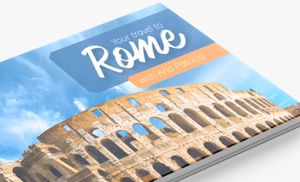
“Your Travel to Rome” is the quintessential e-book for your travel to one of the finest tourist destinations on the planet!
LEARN MORE
4) Accommodation in Italy: What is the difference between the hotel categories? UNDERSTAND CHECK-IN AND CHECK-OUT
Check-in and check-out times: how does it work in Italy? Well, each hotel has its own policy, but normally check-in is allowed at 2 p.m. on the day of arrival and check-out must be done by noon on the day of departure. It’s worth remembering that some hotels allow so-called ‘earlier check in’ and / or ‘late check-out’. Ask at your hotel’s front desk or at the time of booking.
Did you know that we are Booking.com partners?
It is reliable, practical, and safe, and it offers the best prices to their clients!
Know that by booking on our blog through Booking.com you’ll be helping to maintain our website and you’ll not pay anything more for that, as the reservation service is FREE. You pay neither booking nor administrative fees, and reservations can be canceled for free.
Some curiosities
- With daily rates that can reach (shocking!) 5 thousand dollars, there are the exclusive SEVEN-star hotels! In the world, some of them are: Burj Al Arab, in Dubai; Morgan Plaza in Beijing; Laucala Island Resort, Fiji Islands and Emirates Palace, Abu Dhabi.
- Italy also had its 7-star hotel, the TownHouse Galleria Milano. Located at Galeria Vittorio Emanuele, the hotel was the only 7-star hotel in Italy, but it lost stars because it didn’t have its own SPA in its structure, and, despite having built a modern and complete SPA, they chose to ‘boast’ only 5 stars. The daily rate there’s a little more’modest’: it costs 500 euros.
- Some five-star and five-star luxury hotels, in order to maintain 5 stars, need to offer a more complete structure and have in their structure SPA, shop, restaurant, shuttle services, wake-up service, bar, meeting room, games room , swimming pool, etc. However, it’s also possible to find swimming pools in simpler hotels, such as inns and rural hotels, as we will see below.
Watch this video and learn: What is the average cost of a day in Italy?
Subscribe to our channel and receive more videos with information and tips about Italy. Don’t forget to leave that Like;)
BONUS: Different Hotels in Italy!
Discover now the most different hotels in Italy!
Il Rifugio dei Marsi
How about sleeping in huge, old barrels? Never imagined? So it’s worth taking a look at this inn called Il Rifugio dei Marsi, in Roccafluvione, in the Marche region. It’s beautiful!
Tenuta Bocchineri
Who, as a child, never dreamed of a tree house? Now you can sleep in one, in the Tenuta Bocchineri! To live this unique experience. In the region of Calabria, province of Cosenza, it is possible to find this gem immersed in nature!
Casa dei Nonni
Have you ever imagined sleeping in a see-through tent and looking at the stars? No! Then you need to know the hotel, Casa dei Nonni! It’s a more than charming inn with an AWESOME view and offers incredible service! It’s in Monteleone di Fermo, in the Marche region.
Floating Resort
And to close our suggestion list with a very different hotel experience, we go for a hotel that has floating rooms. Yes! The rooms are ‘on the water’ and the so-called ‘maritime resort’ is very different from many things we’ve seen around! We’re talking about the Floating Resort, in Lignano Sabbiadoro, in the province of Udine. The view is beautiful and the room has a small kitchen, bathroom and terrace overlooking the water!
Conclusion
What is the difference between hotel categories in Italy? There are options for every taste and budget! Now just choose your city, your hotel, pack your bags, and ‘buon viaggio’! And if you feel insecure or have no time and need help organizing your trip, don’t hesitate to reach out to me! I’d love to help you make your dream trip to Italy come true. And how can I do that? Keep reading this post until the end, and you’ll understand how we make your life and your trip much easier.
Did my post help you? If so, be sure to post your comment below, but if you still have questions, just send me a message, and I’ll gladly answer you asap!
An Extra Help for your Trip
The best content from Your Travel to Italy!
Learn more about our tours in Italy right now!
- What to visit in Italy in 10 days?
- The ten must-see places in Tuscany?
- The best tips to save on your trip to Italy?
- What are the 10 most visited cities in southern Italy?
- Airports in Italy? How to get to your hotel? (Venice, Milan, Rome, Florence)
- What to do in 1/2/3/4 days in the main Italian cities?
- The best tips on food in Italy (wines, typical food, enogastronomy tours)
- How to get from Fiumicino Airport to Rome downtown?
- Your Travel to Italy: 10 tips for traveling through Italy!
Best regards from Italy

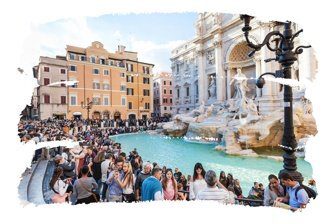
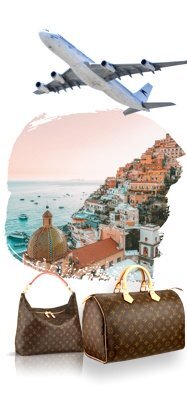
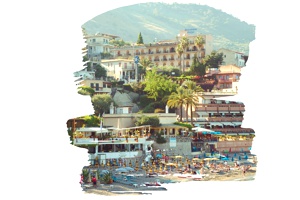 PLACES TO STAY IN ITALY
PLACES TO STAY IN ITALY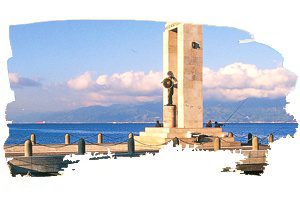

 Save money!
Save money!
Hi, I’m not seeing a breakdown of the actual categories anywhere? Ie category 5 means ______
Hi there! The post is divided into different categories, such as: hotel ranking in stars, different types of accommodations (hotels, hostels, apartments, etc.) and other tips to choose the right place.